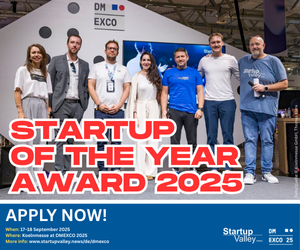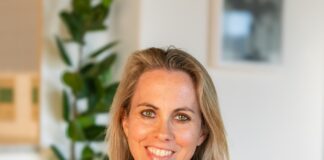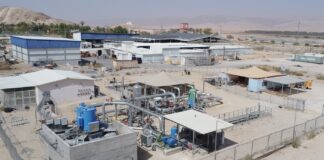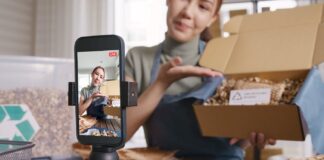A sustainability platform for the textile industry, a biodegradable packaging made of hemp and mycelium, an independent sourcing platform for sustainable packaging, a digital marketplace for used electrical and electronic equipment, a technology-driven platform to connect informal waste pickers to the recycled plastic market and a technological machine to analyse plastic composition – these are the ideas developed by the six Green Alley Award finalists of 2023.
EPS – Expanded Polystyrene Styrofoam – is a classic among the materials used for efficient construction or shock absorption and moisture insensitive packaging of products. Despite many advantages, this material has also downsides: Right now, there is no recycling solution after it is discarded by consumers and if it ends up in the sea or in landfills, it can harm our environment.
From pollution to solution! In today´s news section we would like to introduce S.Lab, an Ukrainian startup that is developing an alternative to EPS material and a truly green packaging solution! Made from mushroom roots and hemp stems, their packaging is therefore 100% biodegradable and waterproof. Read the interview and learn more about the startup´s challenges and their innovative solution!
Your packaging alternative is a great circular economy innovation. Where do you get the mushroom and the hemp that are needed to produce the product?
To produce our material, we need only two components that are hemp’s stem or straw and mycelium, which are mushroom roots.
The first chunk of mycelium we have received from the Botanical Institute in Kyiv and now we are re-cultivating this mycelium in our own laboratory over and over again. This means that one component we are growing in house and do not supply it from somewhere else.
And hemp’s stem or straw is an agricultural waste that remains on the fields after the harvest as garbage, so farmers are happy to find customers for such product as this will make next year’s crop faster and easier. Currently we are sourcing hemp straw from one of the biggest Ukrainian producers of hemp and now also looking into more potential suppliers in the European Union. Also, we can use other agricultural waste like corn stem, wheat stem, tea trees leftovers.
Can you please describe how the biodegradation process works?
After the usage, S.Lab packaging needs to be broken into at least two pieces and ideally thrown into the soil. In the soil our material will fully decompose in 30-45 days without any trace. Moreover, it will fertilize land to which it was thrown away.
Also, it’s absolutely safe to throw such packaging in the residual waste bin or food compost.
What is the benefit of your plastic alternative in comparison to others? Where do you see your USP?
First of all, most of the plastic alternatives are not biodegradable as we would like and might still require long industrial composting under high temperature and pressure. In our case we use only two plant-based components that will biodegrade to 100%.
The other problem with alternative materials is that they still cannot be produced at the industrial scale, only 1,5% of the packaging is produced using alternative materials. In our case from day one we focused on the scalable technology and our goal is to produce packaging at the industrial scale. That’s why we develop our own unique efficient technology that will allow us to quickly launch automated production lines in various locations of the world.
Alternative materials also remain very expensive and with the cheap raw material and scalable efficient technology we can definitely bring our material to a very affordable level.
Having a good idea to solve problems in our society is the first step, but especially startups often encounter many problems and challenges when trying to establish themselves on the market. What has been one of the most challenging moments for S.Lab until now?
Since we are Ukrainians, the most challenging moment was of course full-scale war that hit us out of nowhere in 2022. All our team in different parts of Ukraine woke up from the sounds of explosions and all of us had to leave everything behind and evacuate to save the most basic thing – our lives.
At that moment we were on a survival mode and for some time everything was on pause with S.Lab as of course we didn’t know what will unfold and what future holds for all of us. In just few weeks, when all of us were in safe places, we went back to our startup and understood that no matter what we still want to carry on, build and develop packaging materials to build a better future for all of us.
Please complete our sentence: The world needs a circular economy because…
… there is no other way for the planet and for humanity to achieve sustainability and climate goals. We need to rethink the way we use resources and materials and investigate the opportunity of using more and more renewable resources, repurpose current usage of the resources and decrease waste generation. Only polystyrene packaging leads to 12 million tons of CO2 emissions every year and requires 24 million litres of water for production.
Great example of circular economy implementation in packaging industry is packaging as a service, where instead of using packaging once, it’s collected and then used again in many more cycles of delivery.
The circular economy approach is a pathway to innovative technologies, waste minimization and a more sustainable future.
Register now and watch our six finalists pitch their idea live in Berlin on 27th April 2023!



















